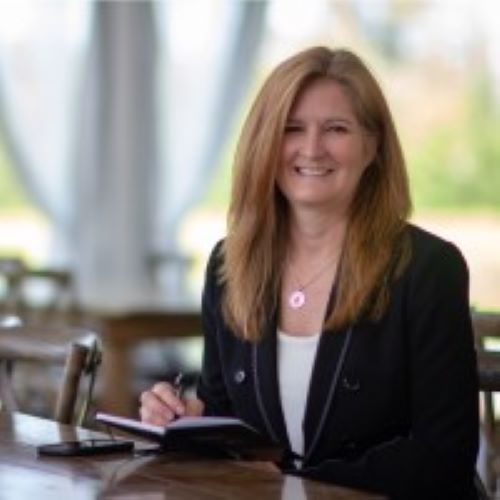Joe Baur
Episode 43: Have a Real, Authentic Experience, with Joe Baur
In this episode, you will learn about having that real, authentic experience when you travel from Joe Baur.
Joe Baur is an American travel author, writer, filmmaker and podcaster whose work has appeared in a variety of domestic and international outlets, including Matador Network, BBC Travel, Viator, and CraftBeer.com to name a few. He’s also the author of various Falcon Guides titles and 2016’s Talking Tico: (Mis)adventures of a Gringo in and Around Costa Rica.
Following a year of living in Costa Rica, where he joined The Tico Times staff and contributed travel content, Joe returned to the United States and launched the Without A Path travel podcast, featuring conversations with fellow travelers on the experiences that have most shaped their lives. In August 2016 he relocated to Düsseldorf where he co-hosts the trivago Podcast and continues to pursue unique travel stories with a preference for getting off the tourist trek.
More on Joe’s Background
Thank you for joining me, Joe.
Thanks for having me. I appreciate it.
I’m really excited to talk to you today. I’ve listened to some of your podcasts, and I really enjoy a lot of your insights and learning about your journeys. I know our listeners are going to learn a lot from you. Before we dive into some questions, I’d really love it if you could give us a little bit more about your journey and your backstory and how you got to where you are today.
Oh, boy. Journey. Well, I guess I would count that as when I first started getting interested in travel, and that would have been all the way back in my college days. I did a summer abroad with a stop in Thailand on the way to northern India, Dharmsala, India, near the Himalayas. That was really my first time overseas and really in a completely different culture. From that experience, I kind of was hooked on travel. I did the more typical American lifestyle afterward in terms of getting a job and working for a long time before you save up those vacation days to really go someplace far. That was about four or five years after India when I was doing a big-kid job and went out to Ireland. I love Ireland, but I always say that I went to Ireland only because that was the cheapest overseas ticket, but again, love Ireland. There’s certainly worse places to go.
After that experience, I just decided I couldn’t wait four years to have that experience. I couldn’t wait four years to ever have an opportunity to go on a big trip, so I started changing my work to allow for flexibility for more travel experiences. I was freelancing, being a contract writer, and that really kind of opened up my time to be able to go on more trips and work remotely. I find that people either kind of have that in their blood or they don’t. There’s certainly no right or wrong way. For me, it’s for better or worse, like a drug. I feel like I need to keep moving. I need to keep traveling. I need to keep having those experiences. I really just enjoy hearing other people’s stories in different cultures and sharing those stories with people who might not have the opportunity to hear those stories firsthand.
I did that for a while in Cleveland. Prior to that, I did live in Chicago for a bit. Eventually, that call that had been in the back of my head since college to live abroad got louder and louder. My newlywed wife and I moved to Costa Rica, actually three years ago from today as we’re recording this chat. It was three years ago today that — a month after getting married — we moved to Costa Rica and lived there for about 10 months. That’s basically what the book you mentioned, Talking Tico, is about. Then, after Costa Rica and doing some travel in Central America, went back to the U.S. and was only there for about a year or so, and that itch got even worse, and kind of jumped at the first opportunity to go overseas again. That’s was landed me in Dusseldorf, Germany.
Wow. That’s just a really amazing story. I actually really like how it starts with your college experience and your study abroad because my listeners have heard me talk about my children — I’m the mother of four and one of them is in college. I know studying abroad is very important to the college experience. I just love how that kind of set you off on this trajectory.
Yeah. For your sake, as a mother, I hope that doesn’t necessarily put them on the opposite side of the planet because I’m sure you want to be with your children, but yeah, for me, it’s what kind of set me off on this career, I suppose.
Yeah. I just think that’s awesome and how you’re committed to it. You found your passion. You realized you needed to commit to the passion, and then you created your life to work with that. That’s just really, really awesome and inspiring.
Yeah. For me, the ability to travel, whether that’s just a physical ability, walking breathing, talking, to the financial ability, is such a privilege that for me to not be able to make the most of that and use that privilege in a positive way to open up the world to other people who either might not have the same privilege or same opportunity to do that or who might have some misunderstanding about different cultures and hopefully, I can use that as a way to leave my own positive impact in the world. That’s my utopic view anyway.
I love that. That’s great.
How to be a Smart Traveler
Right in the pre-interview chat, you and I were talking a little bit about some similarities that we have in terms of the travel industry and folks that we work with, specifically DMOs. I’m really excited to kind of hear your perspective from your travels, the work you’ve done in travel writing, the work you do on your podcast, et cetera, on some of these travel trends and things that you’re seeing out there as your feet on the street traveling the world. I’m wondering if you have any travel trends that may be top of mind and that stand out with you. I think there’s an obvious one, actually, as we’re sitting her talking to each other, and that’s the whole idea of the remote worker.
Yes. I mean that’s certainly one for people who have the same itch as I do that they need to constantly be moving and constantly having new experiences. Whether it’s they get bored, I don’t know, but there are just people who are built in such a way that they need to keep moving, so the work remote trend is certainly one that would mostly satisfy that itch.
In terms of just the everyday traveler, I do think there is a push away from the more typical tourist attractions. I think people are still drawn to seeing the main sights of a destination. Certainly, when I go to places, I’m not going to be such a snob that, when I’m in Paris, I will deliberately look away from the Eiffel Tower, or Notre Dame, or something like that. I’ll look at it and appreciate it. But I think there’s more of a willingness for people, and an interest from people, to do things that they might not usually do, whether it’s going to a neighborhood where nobody speaks their language and just trying new food or something that might be perceived as more intense in terms of going to a country that, at least media-wise, doesn’t have the greatest reputation. More people are willing to find out for themselves and be smart about it, but find out for themselves and head to a destination and kind of see what’s really going on.
Oh, that’s really interesting perspective too. That’s a little bit of an adventure there, wanting to see it for yourself, right?
Sure.
And experience it for yourself. Actually, those three things you just mentioned, visiting a neighborhood maybe where nobody speaks the language, or trying new foods, or seeking out a destination maybe that doesn’t have the best media reputation, how do travelers find these places or these experiences?
Well, there’s just so much information out there these days. I don’t think there’s an argument that the spread of technology and information is what has made potential travelers and tourists feel more bold in going to places that they may not have otherwise gone to were it two decades ago. I’m a big believer in the little blue dot of Google Maps. I know there’s places that I personally wouldn’t go to if I didn’t know that I could pull up my phone and, if I were in a tricky situation, I could relatively easily get myself out of it. It’s not even about safety. It’s just that I really want to go check out this neighborhood that I heard that isn’t very touristy, and I just want to see what the locals do up there. I could plug it in onto Google Maps, and it’ll give me transit directions. I definitely think it’s just the technology that’s out there that makes you more bold. There’s more information, so you can read up on these places before you go there.
There’s certainly a negative to that. A lot of people in travel talk about how are there any more surprises, because you could Google pictures in Antarctica? You can really find any corner of the globe on your computer. I absolutely don’t think that substitutes the human-to-human experience that you get when you go someplace, but there’s just so much possibility and it’s so much easier to prepare yourself for any destination that I just think it’s made people feel a little bit more bold, a little bit more confident.
Yeah. That’s really interesting perspective. I was at a conference recently. We were talking about technology. Actually, there was a presentation done by Google, and they were pushing for their Google app. Basically, the presenter was talking about how you don’t need wifi to use the app if you preplan right where you’re going, so then if you’re in a tricky situation or in location where there’s no wifi or service, you can still kind of find your way out.
Yeah. If I don’t have service, at the last point that I do have wifi or something, I will make a point of where my hotel is. Then, once I lose service, like you said, the blue dot still works. You can find your way around. I’ll make screenshots on my phone so I have the picture on my phone in case the app crashes, whatever. There’s a lot of things that you can do to still be a smart traveler but really give yourself a little bit more of a rope to get out there and explore things.

[bctt tweet=”“Technology gives travelers the ability to do more exploring.” – @BaurJoe #Podcast”]
Yeah. I think that’s great. You just mentioned being a smart traveler. What are some other tips that you might have for being a smart traveler? I think the technology tip is definitely a great one, but are there other things that you do?
It depends on where I’m going. Usually, no matter what language is part of it, just being able to say hi, thank you, please. Yeah, those are the main ones, if you could just learn that in the local language. I won’t pretend that I’m this polyglot who can rattle off in a bunch of languages those words. If it’s a place where I know English or Spanish is not spoken there, I’ll make an effort to at least learn those basic human words.
Other than that, I don’t know if I’m the best guy to ask about safety tips because I’m a white male, and so I come with a heap of privilege that doesn’t need to necessarily need to look over my shoulder when I’m walking in a dark alley or I usually won’t have creepy dudes following me late at night. I know I’ve spoken with a lot of female travel bloggers who can offer fantastic tips on how those who are most vulnerable in different situations can be smart and protect themselves. I know you’re trying to get away from the technology, but that gets back to the technology where if you are trying to travel as a single woman or something like that, you can find wonderful female travel bloggers out there who offer just a wealth of information on how to be smart. I guess the tip to take away from that is do your research before you head anywhere.
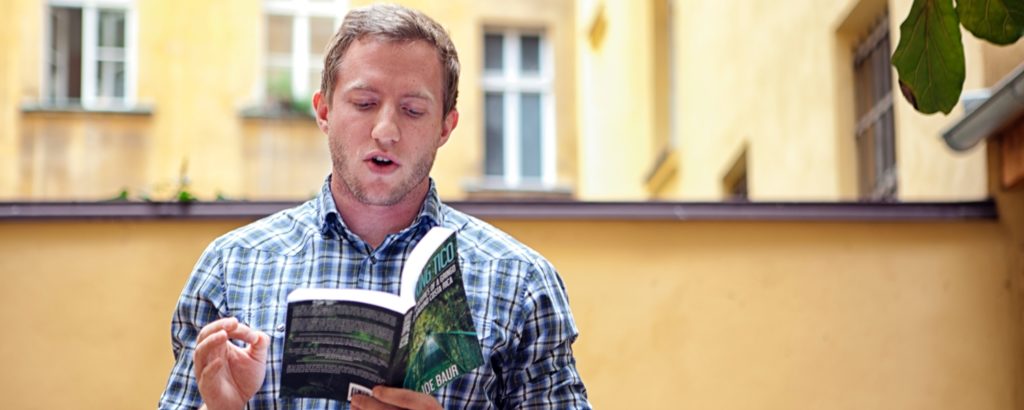
[bctt tweet=”“Do your research before you travel anywhere.” – @BaurJoe #Podcast”]
Yeah. I think that’s a great tip. I actually heard one of your interviews with one of those female solo travelers, bloggers. I thought it was very informative. I agree, definitely use technology for that, and preplan, I think, is a great, great tip. We’ve talked about the working remotely travel trend and the push away from typical tourist attractions. Are there other trends that you’re seeing out there?
Boy, tourist attractions, I think that can be a very broad umbrella because the authentic, real experience, so to speak, that could mean going to El Salvador and having a pupusa in Santa Tecla or it could also mean going to a restaurant in Paris where they don’t have the menus in English because they’re just trying to stay super Francophile and damn the changing times. That’s a nice umbrella, I think, to pay attention, overall, as a trend. Then, from there, you can find different things that still fit underneath that niche.
Yeah, I agree. If you’re a destination that’s trying to market yourself and market those authentic, real experiences, do you have any thoughts on how those destinations might do that without then turning them into feeling like they’re more touristy attractions?
Yeah. I mean there’s definitely the double-edged sword where you want people to find the thing. You want to tell people, “Nobody else knows about this,” but you want people to know about it. I don’t know. I think the main thing that sticks out it is to really try to differentiate yourself. The big thing now is craft beer. You go to conferences or anytime you’re near any kind of tourism material, the first thing is always, “We have craft beer too. Come drink here. We have craft beer too.” That’s great, and I’m a sucker for that. I’ll get drawn in pretty much no matter what, but it helps to really differentiate yourself, whether it’s a story that makes you different or something else. That’s were the creative side comes in. How do you actually differentiate yourself? Don’t follow trends just for the sake of following trends. Pay attention to the trends and find a way that you could stick out within that trend and differentiate yourself so you really stick out.
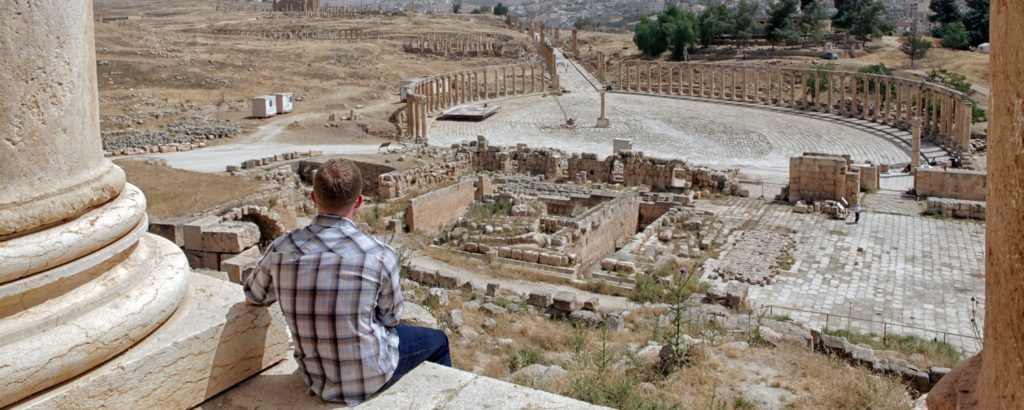
[bctt tweet=”“Find a way to stick out within a trend and differentiate yourself.” – @BaurJoe #Podcast”]
That’s great. I think that’s really great perspective. I appreciate that. That’s awesome. That’s actually a perfect segue into this next set of questions that I want to talk to you about.
Working Together to Amplify a Message
What we like to focus on on this podcast is primarily creativity and collaboration. A lot of times, it’s hard to talk about one in the tourism industry without talking about both creativity and collaboration because there’s a lot of collaboration that happens. As you know, travelers don’t travel by just for one attraction. They don’t travel by city. They don’t travel by county lines particularly. It’s really important to tell the whole travel story, which usually requires a lot of collaboration.
My question for you is do you have any examples of destinations or experiences that you’ve had or seen that particularly stand out in terms of creativity, being extremely creative or collaborative?
Collaborative in terms of with bloggers and stuff or just with travelers?
It could be either, actually. We really like to explore this whole concept of collaboration on this podcast because, like I just described, travelers don’t travel by state county lines or state lines necessarily, and so you see a lot of — whether it’s an attraction coming together, maybe it’s a museum and many museums coming together and creating a trail, or it’s several DMOs coming together and promoting a region. There’s just a lot of cross-collaboration. It could be even on the writer’s side as to how you collaborate.
Sure. Well, I guess the first thing that sticks out in my mind in terms of collaboration — you basically mentioned it when a bunch of smaller organizations come together to make something bigger that’ll stick out. I’ve seen that in terms of a craft beer trail, or a bourbon trail, or something like that where they have different towns working together to promote this thing, and that’s just going to amplify the voice.
Where I live now in Germany it’s a pretty good example here. I was just trying to find — I know there’s lots of hiking, but I didn’t necessarily know where to go, so I went to the state tourism brach’s website. They compile information from all of the different cities and towns and what not in the state. I found this incredible trail called the Rennsteig where it’s 300-some kilometers from Mainz, which is out of state, up to Bonn. I’m hooked on this thing, and I’ve become a little non-paid ambassador for this thing, just always talking about it whenever I can about one of the reasons I love living here.
I think any time that you can find a common theme and work together to amplify that message is a huge win. That’s something that I wish I would see more often in places that I’ve traveled in the U.S. There’s a great book about tourism called Overbooked. If my memory serves me, it talks a little bit about how tourism in the U.S. wasn’t appreciated in the same way as it is in other parts of the world, namely Europe, where it’s given a lot of money and it’s seen as a valuable contributor to the economy. I feel like there’s certain aspects in which the U.S. tourism market is, perhaps, a little behind in terms of promotion. But I also know, knowing people who work in the industry, it’s because they don’t get that money that I know people get in Europe. It’s a mixture of having the funds available to do cool, creative things, but if you can’t do that, then finding people who have shared interests to amplify the message of what’s cool about the region.
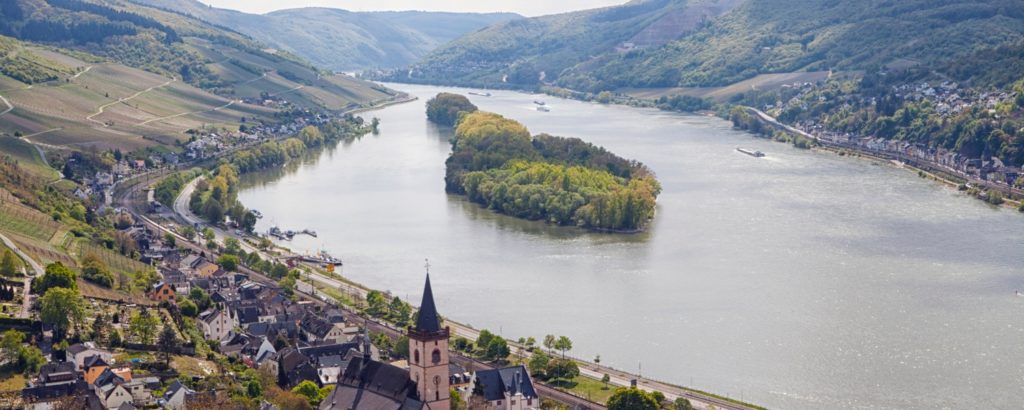
[bctt tweet=”“Finding a common theme and working together to amplify that message is a huge win.” – @BaurJoe #WhyCollaborate”]
Yeah. I think you just really hit it there, because I do see that a lot of times. Smaller destinations, smaller cities, they don’t have the resources to do it on their own. I actually like to call it coopetition, basically, where competitors come together to cooperate and to create something that’s bigger than they can do on their own. I think that what you just talked about, actually, is a great example of why that’s so important. I hadn’t heard of that book <em<Overbooked, so I’m going to look that up for sure on Amazon and get that one added to my reading list.
Yeah, it’s great. It really looks at the history of tourism, and it’s all over the place. I had the privilege of interviewing her for my podcast. There’s a wealth of knowledge in there.
That’s great. I’ll look forward to looking at that.
Respect the Culture
Well, you’ve traveled all over the world. I don’t know, maybe you could pull from your experience in Costa Rica, but is there anything that stood out to you? Maybe creativity isn’t the right word for this conversation, but just something that just really stood out to you as in an over-the-top, unforgettable experience? Maybe you could describe that experience and then share with us why that meant so much to you.
I could think of a positive and a negative.
Sure.
I don’t know if that’s of any interest.
Yeah. We definitely learn from the negatives too, right?
Maybe I’ll start with the negative first so that I can cheer us up with the positive. In Costa Rica, I did a lot of traveling. There’s definitely a large or growing population of expatriates from North America who move there just because it’s nicer weather or what have you. It’s cheaper cost of living than the U.S. or Canada. I was kind of disappointed to find that when I was traveling to some places where there’s a high expatriate community, that the North Americans seemed to take. It felt like history repeating ourself, like how the Americas were found. They felt like they were kind of taking their claim to this place that isn’t North America. I guess, geographically, some people say it is part of North America, but in terms of it’s not the U.S. and Canada, and people come down there, and they expect certain things.
Without naming specifics, I stayed at one hotel, for example, run by a couple of Canadians who had been living there for a long time running this business, and didn’t speak a lick of Spanish. I remember we were being shown around the property and somebody called, and the guy just looked at me and handed me the phone, expecting me to give the people directions. I was just kind of blown away. They were there for over a decade and didn’t speak a word. I’m not saying being fluent and rattling off plays at the local theater, but be able to give directions to customers.
This was followed up by them kind of patting themselves on the back. I hate to be that guy who’s like, “And I talk about this more in the book,” but I write about this in the book about how they were kind of patting themselves on the back saying how they usually don’t welcome Costa Ricans or they don’t usually have Costa Ricans, but they’re trying to give them another shot. They said some pretty xenophobic things, and weird to say xenophobic when they were in Costa Rica, in their country, but they said some things that aren’t worth repeating, and they were kind of patting themselves on the back saying like, “Oh, but we’re trying to give them another shot and let them come in.” Sure enough, we had breakfast with these Costa Ricans the next morning. They couldn’t have been nicer.
That was something that was disappointing, and I saw that in another Costa Rican town that has a decent amount of tourism where it kind of came from the opposite perspective, where this particular guy who ran a hotel painted this picture about how he’s there to save Costa Ricans and there to save them from people coming in and ruining their culture and making sure that they can preserve their simple lives. Just this kind of garbage that I was like, “Dude, the guy who I’m renting from works harder than you’ve ever worked in your life.” Seeing that kind really disappointed me.
On the positive side, it was traveling in Central America, specifically in El Salvador, that I kind of had my come-to-Jesus moment where it was like this is what I want to do with the rest of my life. My wife and I, in January, had all of January off, so we were looking at doing some travel further away from our home in Costa Rica. I saw a cheap flight to El Salvador and Guatemala, so we planned this trip where we’d be in El Salvador for a week, hop over the border to Guatemala, then fly back. I had also been going to graduate school, at the time, in Costa Rica. I had some classmates tell me, “Oh, don’t go to El Salvador. They’re gonna do something to you,” or whatever. I had people back in the States thinking that we were nuts for going. That actually just made me want to go even more and really push myself to decide, “I’m going to go to El Salvador. I’m going to have a great time, and I’m going to tell people about it, what it’s really like there. It’s not the CNN clips that you saw a decade ago or the worst of the CNN clips that you might still see today.”
We went and, to keep a long story short, it’s still a trip that we talk about to this day. It was not even just one of the best travel experiences, but it was just one of the best human experiences of my life. I remember vividly, at the end of this trip, being in El Tunco. The hotel we were staying at, the receptionist was a Swiss woman who had a similar experience. She went to Central America. People told her, “Don’t go to El Salvador.” She went to El Salvador, met a Salvadoranio, and married him. She was there and she hooked us up with her husband’s cousin who took us on a hiking trail, but not an official trail, basically, a little dirt path that he walked a lot when he was a kid and to a series of waterfalls. He showed us these waterfalls and had us jump in, and we’re just having the best time. There’s nobody else there, really, but on the way back to the hotel or hiking a bit more back to where we started, we passed by this group of children who, from my perspective and putting my North American hat on, looked like a kids’ field trip or something. They had what looked like some chaperones or whatever. They’re in their swimsuits, and they’re just splashing around in the river.
I just had this thought. I had a lot of expletives in my head thinking, “Bleep you,” to all these people who were telling me, “Don’t go there. There’s scary people there.” Of course, there’s bad things everywhere, but just like in the States, there’s kids playing in water, there’s kids in El Salvador playing in the water. There’s kids playing everywhere. To paint this monolithic image that a destination is just so terrifying that it’s not worthy of going there and meeting people and having not even just a conversation, even just a smile and a nod. It just really upset me to the point of lots of inner profanity. It was kind of from then on that I kind of had this personal mantra to tell stories that people might either have misconceptions about or just be afraid of. I was able to go there and show a lot of people, I hope. I talk about El Salvador whenever I can and, hopefully, that makes people think twice about either broadly painting a place like El Salvador or broadly painting any place, because every place has something to offer.
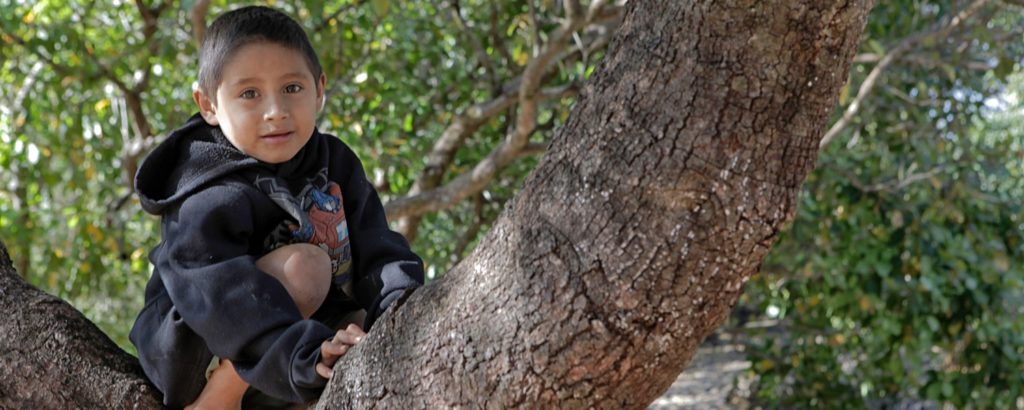
[bctt tweet=”“Every place has something to offer.” – @BaurJoe #podcast #WhyCollaborate”]
Yeah. I think that’s great. Actually, both of those examples have the same theme, and that goes back to something you said earlier which is about that kind of authentic, real experience. What I kind of heard come through is it’s a respect for a culture. The other thing I’m hearing, and you didn’t say this, but this is what I’m hearing, is just the whole opportunity for personal growth that happens on these trips as you were describing your connection with the people, your connection even, perhaps, with nature on that hike with the waterfalls, and then observing those children playing. I just think that that’s really cool. To quote you, you said, “The best human experience,” which I just think is really, really awesome and really telling, right? As a marketer, you can’t really market that necessarily, but it really is that real experience that we’ve been talking about.
Yeah. I mean, for me, that’s what I want. If you want to go back to talking about trends, I think people don’t want an authentic, so-to-speak, experience for the sake of having it. They want it because they want to have those moments where they have a better understanding of the world we live in, I think.
Yeah, absolutely. I love that.
Upcoming Projects
Well, Joe, this has been a really great conversation. I knew it would be. Before we come to the end of the interview, I’d like to ask you if there are any exciting projects that you’re working on that you might want to share with our listeners, things that are coming up?
Sure. Exciting projects. I could talk about the Germany thing a bit, and I’ll talk about something else in case I can’t even talk about that. Right now, I’m in the middle of working with German tourism going around 16 cities across the country to produce what is the first Instagram show. If that sounds like nonsense, it’s because it hasn’t been done before. We’re trying to take this U.S. late-night format and bring it to Instagram Stories. It’s a show with different segments, and it shows off the diversity of different German cities. Right now, I’m in the middle of traveling to all of these cities, and so that’s something that, like I said, I haven’t done before, so I’m excited about it. I’m excited to see what people think about it. Hopefully, it opens up the country in a different way for people and it gets people interested in traveling to Germany.
Besides that, I’m working on putting together another book. I did Talking Tico, and I’m still doing some talks and whatnot about that in different bookstores or just travel groups or whatever around Europe, but I’m also working on something that is going to be more of an inside look at this industry that we’re talking about, so about how I got started, about some of the debates that go on in the industry — just to give people an inside look at what that looks like to go on a press trip, or the debate about are press trips okay, working with editors, and while doing that, just giving some people more of my trips that I’ve been very fortunate enough to have in this strange career that I have.
Well, both of those sound really awesome. I’m really intrigued by the Instagram Stories show, especially intrigued to see how this U.S. late-night talk show format plays out on Instagram.
Yeah.
That right there is creativity at its best, I think.
Yeah. Truthfully, it’s turned into more of this return to the silent film, Charlie Chaplin kind of bit, because you think about how anybody watches Instagram Stories, most people don’t turn the sound on. We have a few bits where we use video and we have audio, but even then we put little text overlays to try to keep people engaged if they don’t turn the sound on. Most of it ends up being very silly, slapsticky, Charlie Chaplin thing.
My director, Jenna Davis, who’s been absolutely fantastic, she has this great theory that we’re working in a circle. We’ve started off with still photographs, black and white, got into video, and now the attention span is getting so short that, even in the video segments, I’m having to do hyper lapses which turn me into like a Charlie Chaplin Tramp character, which again, I’m 100% okay with. I love doing pratfalls, and Charlie Chaplin is like my god, so happy to do that. We keep going back in this circle that now we’re returning to the slapsticky 1920s humor, and someday we’re going to be back again to just still photos. Yeah, but it’s been fun to work on.
That’s awesome. Well, I can’t wait to see that. We’ll definitely link to those shows in our show notes for this podcast so that listeners can go and check that out for sure.
Sounds good.
I’ll look forward to that next book as well. I really appreciate you being with us, and especially because we had to jump a few time zones in order to make this happen. It’s early in the morning for me. I think it’s getting pretty late for you.
Oh, not too bad. We’re getting to be about 5:00 now.
Oh, okay, not to bad.
No, not too bad.
I wanted to ask you to share with our listeners how they can best find you.
Sure. Well, just my name is my website, joebaur.com. Because there’s another Joe Baur out there, I’ve had to flip it around for all the obligatory social media, so @BaurJoe across Facebook, Twitter, and Instagram. That’ll get you to me.
Fabulous. Well, I really appreciate you spending time with us. I’ll look forward to talking to you again soon. Thanks for being here, Joe.
Oh, thank you, Nicole. It was a pleasure.
Ways to contact Joe:
- Website: joebaur.com
- Website: withoutapath.com
- Facebook: www.facebook.com/BaurJoe
- Twitter: @BaurJoe
- Instagram: @BaurJoe
- Germany Travel Show: germany.travel/en/ms/the-germany-travel-show/the-germany-travel-show.html
- Podcast: Beyond Borders
We value your thoughts and feedback and would love to hear from you. Leave us a review on your favorite streaming platform to let us know what you want to hear more of. Here is a quick tutorial on how to leave us a rating and review on iTunes!


